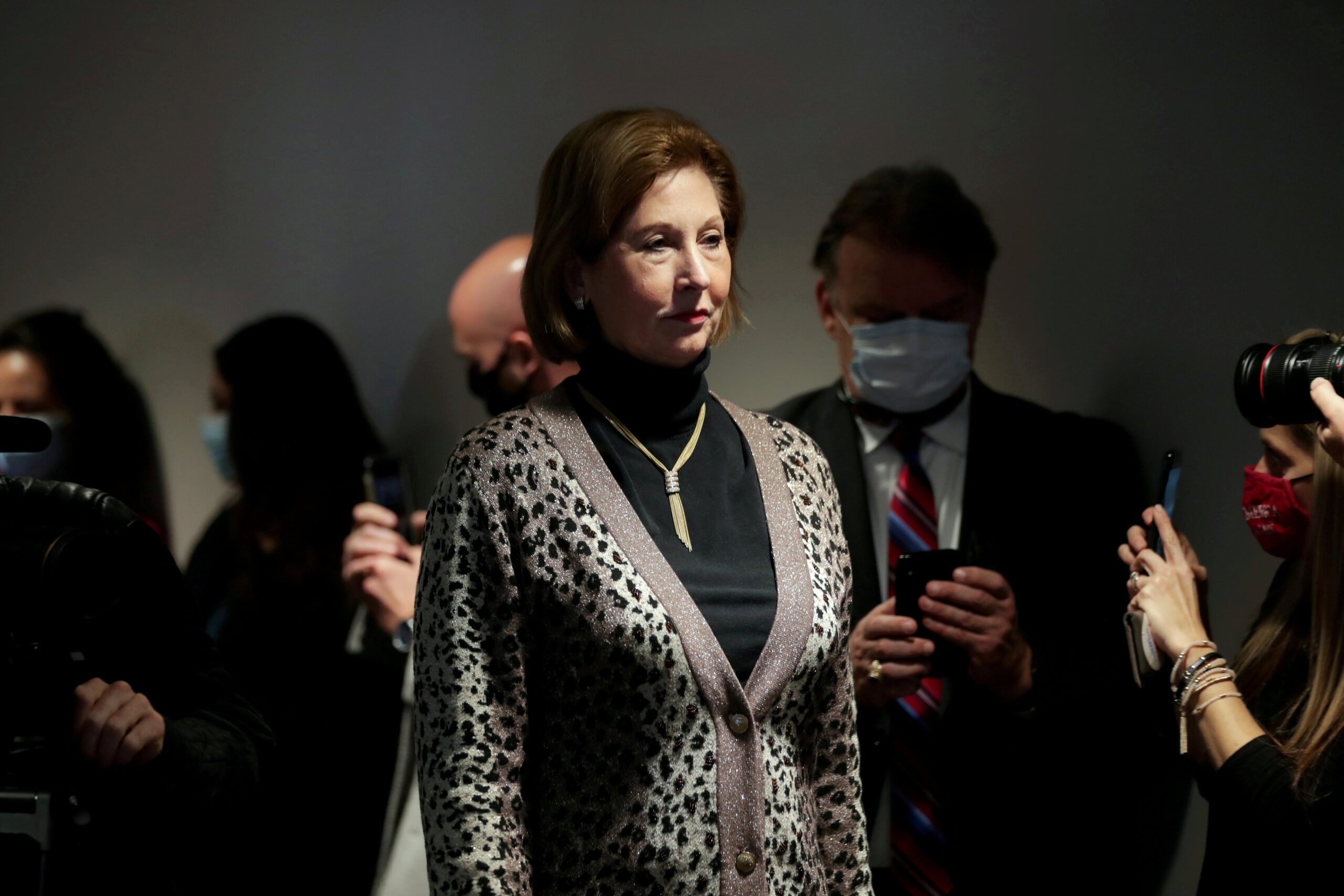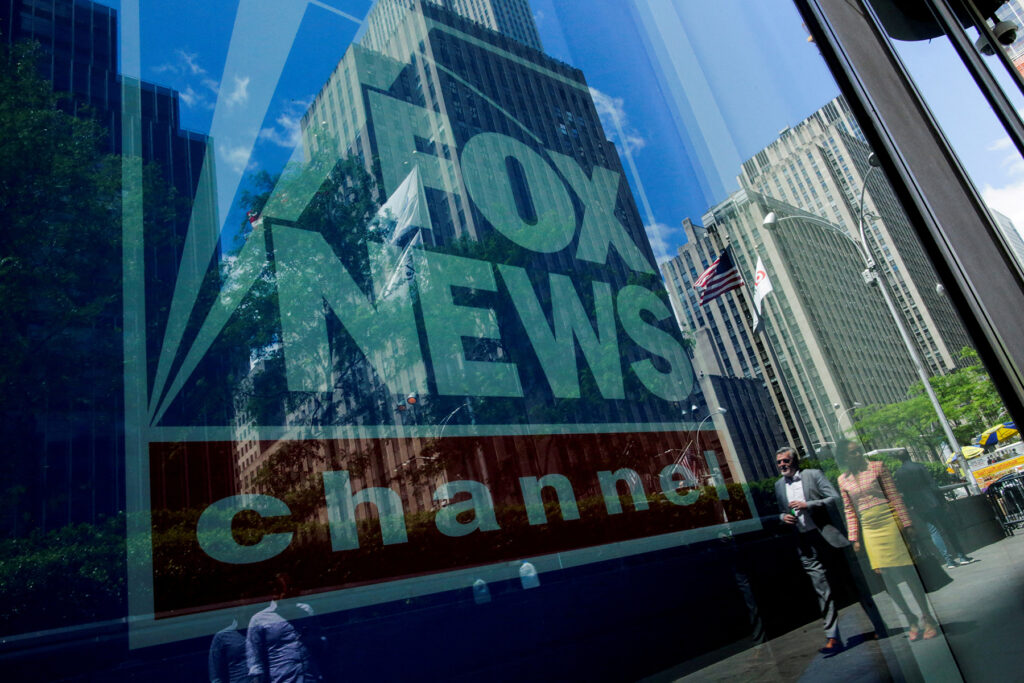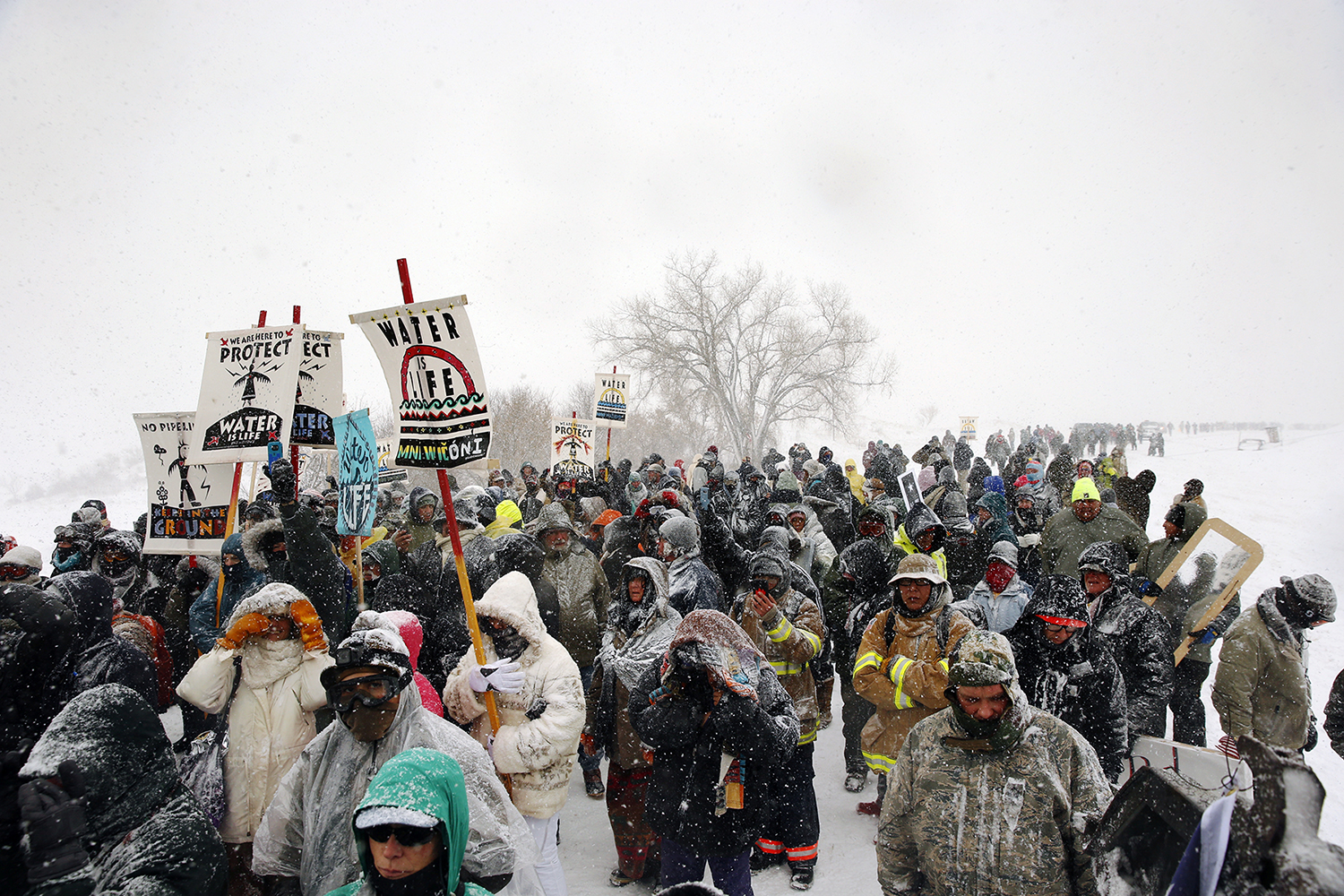Top Fox News executives and on-air personalities expressed concern over Donald Trump’s fraudulent election claims in 2020, but the network continued to air the falsities anyway, according to a brief made public Feb. 16 in Dominion Voting Systems’ defamation lawsuit against the network.
Dominion sued the TV network for $1.6 billion alleging it spread false information claiming that the company’s voting technology was used to rig the 2020 presidential election.
Dominion’s brief in support of its motion for summary judgment, filed Jan. 17 in Delaware Superior Court, includes private text messages between Tucker Carlson, Sean Hannity and Laura Ingraham, among others.
On Nov. 15, 2020, Ingraham wrote to Carlson and Hannity: “Sidney Powell is a bit nuts. Sorry but she is,” referring to one of Trump’s senior attorneys who claimed to have evidence of voter fraud.
According to an excerpted exhibit in the case, Carlson wrote to a producer the next day: “Sidney Powell is lying.”
Even Fox Chairman Rupert Murdoch described Trump’s fraud claims as “Really crazy stuff” Nov. 19, 2020, according to the brief.
In late January, Judge Eric M. Davis ruled that Dominion would be considered a limited public figure in the trial, requiring the technology company’s attorneys to prove actual malice.
The actual malice standard was established by the 1964 Supreme Court decision in New York Times v. Sullivan, in which the court held that public officials and public figures can’t prevail in a defamation suit without proving that a statement was false and that, in addition, it was made “with knowledge that it was false or with reckless disregard of whether it was false or not.”
The courts have defined reckless disregard as proof that the defendant entertained serious doubts as to the truth or had a high degree of awareness of probable falsehood, and published anyway.
“Fox knew. From the top down, Fox knew ‘the dominion stuff’ was ‘total bs,’” Dominion wrote in its filing. “Yet despite knowing the truth—or at a minimum, recklessly disregarding that truth—Fox spread and endorsed these ‘outlandish voter fraud claims’ about Dominion even as it internally recognized the lies as ‘crazy,’ ‘absurd,’ and ‘shockingly reckless.’”
The brief was written before Murdoch’s deposition last month, which remains under seal, but it does reference the depositions of Hannity, Maria Bartiromo and Lou Dobbs, among others.
According to the filing, Dobbs said on-air and reiterated in his testimony that he’d “never seen verifiable support for the fraud claims about Dominion that his show pushed in November and December 2020.”

Sidney Powell, an attorney later disavowed by the Trump campaign, participates in a news conference with U.S. President Donald Trump’s personal lawyer Rudy Giuliani (not pictured) at the Republican National Committee headquarters on Capitol Hill in Washington, D.C., Nov. 19, 2020. (Reuters/Jonathan Erns)
Dominion’s filing includes a deposition statement attributed to Hannity in which he says: “[T]hat whole narrative that Sidney was pushing, I did not believe it for one second.”
In Fox’s counterclaim, also publicly released Feb. 16, the network’s attorneys argued that its reporters were exercising their First Amendment rights and based its argument on New York’s “anti-SLAPP” law, The Associated Press reported Feb. 17.
“According to Dominion, FNN had a duty not to truthfully report the President’s allegations but to suppress them or denounce them as false,” Fox attorneys wrote in its filing. “Dominion is fundamentally mistaken. Freedom of speech and freedom of the press would be illusory if the prevailing side in a public controversy could sue the press for giving a forum to the losing side.”
A statement from a Fox spokesperson to The New York Times said, “Dominion has mischaracterized the record, cherry-picked quotes stripped of key context and spilled considerable ink on facts that are irrelevant under black-letter principles of defamation law.”
While the released Dominion brief may give the public a glimpse into the internal conversations at Fox, some portions are redacted and thousands of documents — such as texts, emails and witness deposition testimonies — are still under seal.
On Jan. 25, The Times and National Public Radio filed a legal brief challenging the court’s decision to keep the documents confidential.
“This lawsuit is unquestionably a consequential defamation case that tests the scope of the First Amendment,” the challenge stated. “It has been the subject of widespread public interest and media coverage and undeniably involves a matter of profound public interest: namely, how a broadcast network fact-checked and presented to the public the allegations that the 2020 Presidential election was stolen and that plaintiff was to blame.”
The notice of the challenge to confidential treatment contested the court’s decision to seal “summary judgment motions, including all briefs, certifications, affidavits, exhibits, and appendices.”
Under Delaware Superior Court Rule 5(g), all filings are public record unless a party “seeking to maintain the document, or portions thereof, under seal establishes ‘good cause’ for doing so,” the challenge states.
While the two media organizations noted that they “cannot discern” what is sensitive material or not, they do “rely on the Court to ensure the parties meet their high burden to justify sealing information which goes to the heart of very public and significant events.”
Dominion sued Fox News and its parent company, Fox Corporation, in March 2021. The 141-page lawsuit highlights four main “outlandish, defamatory, and far-fetching fictions” that the TV network helped spread, namely “(1) Dominion committed election fraud by rigging the 2020 Presidential Election, (2) Dominion’s software and algorithms manipulated vote counts in the 2020 Presidential Election, (3) Dominion is owned by a company founded in Venezuela to rig elections for the dictator Hugo Chávez; and (4) Dominion paid kickbacks to government officials who used its machines in the 2020 Presidential Election,” the complaint stated.
See more of First Amendment Watch’s coverage of the lawsuit here
According to The New York Times, “Most of the evidence in the case — including text messages and emails taken from the personal phones of Fox executives, on-air personalities and producers in the weeks after the election — has remained under seal at the request of lawyers for the network.”
Dan K. Webb, an attorney for Fox, told The Times in December that “the company had produced more than 52,000 documents for Dominion, with more to come.”
The court records include information that “goes to the heart of the parties’ substantive claims; specifically, whether Defendants published false statements with actual malice and whether the lawsuit was filed to chill free speech,” the media organizations’ motion stated.
“This case raises important issues about libel law and the protections afforded by the First Amendment,” said David McCraw, senior vice president and deputy general counsel of The New York Times Company in a statement provided to First Amendment Watch. “The public has a right to transparent judicial proceedings to ensure that the law is being applied fairly. That is especially important in a case that touches upon political issues that have deeply divided the country.”
Mirroring The Times and NPR’s challenge, Associated Press reporter Randall Chase sent a letter to Judge Davis Feb. 8 challenging the “pervasive and continued confidential treatment of court filings.”
“The secrecy surrounding this case ignores the presumption of public access to court records, a foundational principle that has been reiterated and reinforced by Delaware courts for years,” Chase wrote.
Judge Davis denied Fox’s motion to dismiss in December 2021, stating that the company was aware of “countervailing evidence” to its claims about Dominion, and “despite this evidence, Fox continued to publish its allegations against Dominion,” which suggests “Fox knew the allegations were probably false.”
The trial is slated to begin in Delaware Superior Court in mid-April.
Jan. 17, 2023 (Public Feb. 16) — Dominion’s Brief in Support of Its Motion for Summary Judgment
Feb. 8, 2023 — Associated Press Reporter Randall Chase Letter Challenging Confidential Documents
Jan. 27, 2023 — Judge Davis Order on Public Figure Status
Jan. 25, 2023 — The New York Times & NPR Notice of Challenge
Tags



